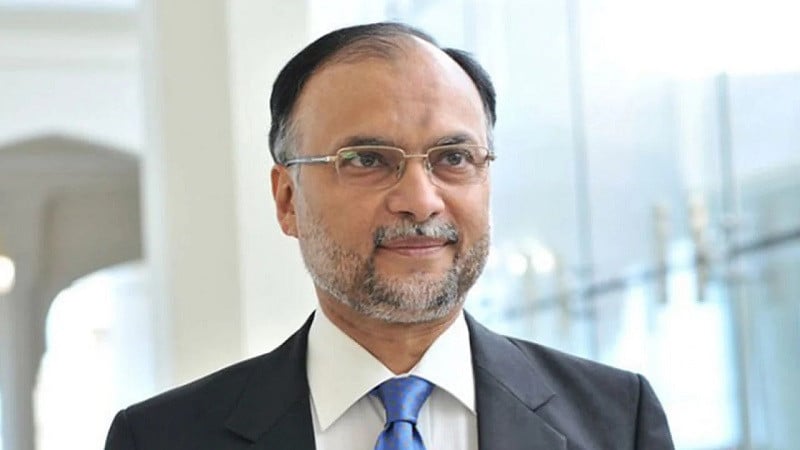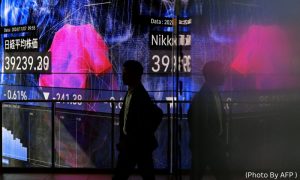ISLAMABAD: Amidst a backdrop of economic challenges and potential, Pakistan’s Minister for Planning, Development, and Special Initiatives Ahsan Iqbal envisions a future where the country’s economy reaches a staggering $3 trillion by its centennial independence.
Speaking at the ‘Data Fest 2024’ hosted by the Pakistan Bureau of Statistics (PBS) at the Pakistan-China Friendship Centre, Iqbal underscored the significance of data-driven and knowledge-based economies in today’s landscape. He highlighted that integrating data and leveraging artificial intelligence are essential for sustainable economic growth.
The event saw the participation of various dignitaries, including NADRA Chairman Lieutenant General Muhammad Munir Afsar, Federal Secretary for Planning Owais Manzoor Sumra, Chief Statistician Naeem-ul-Zafar, and representatives from federal and provincial ministries.
Iqbal stated, “We are living in an era of unprecedented change, with rapid innovations reshaping our world.” He noted that modern data science drives economic progress, with data analytics and advanced technologies at the forefront of the digital revolution. Quality data, he emphasized, is foundational for any economic theory and vital for development.
He explained that sustainable economic growth relies on a decade of consistent policies, and the government is currently drafting its next five-year plan. Reflecting on the Vision 2025 framework established in 2014, he acknowledged its relevance to many of the current challenges Pakistan faces.
While recognizing past achievements, such as overcoming energy shortages and terrorism challenges in 2017-18 and the positive impacts of the China-Pakistan Economic Corridor (CPEC), he expressed concern about a regression to conditions reminiscent of 2013. He stressed the importance of policy continuity in achieving economic objectives.
“Our economy needs reliable data to accurately gauge progress,” Iqbal remarked, emphasizing that robust data sets are crucial for business development. He asserted that nations and individuals who effectively harness data can realize their economic ambitions. He also expressed hope for the young attendees, encouraging them to cultivate their data skills to shape the future.
Additionally, he noted Pakistan’s positive representation at the recent Shanghai Cooperation Organization summit, pointing out encouraging economic indicators, including a decline in inflation rates to single digits. Iqbal reaffirmed the potential of Pakistan’s youth to elevate the nation on the global stage.
During the ceremony, Federal Secretary Owais Manzoor Sumra stressed that data integration, visualization, and advanced technology are vital for sustainable economic development. Chief Statistician Naeem-ul-Zafar added that data science is critical to every sector of the economy and must underpin Pakistan’s efforts towards a data-driven economy.

























